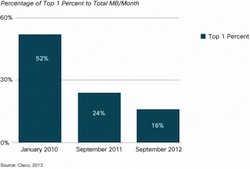Bills to extend CASF introduced in California legislature
ab1299, broadband, casf, community networks, cpuc, public policy, sb740

Pork is in the eye of the beholder.
Two bills proposing three changes to the California Advanced Services Fund (CASF) made it into the legislative sausage grinder by Friday’s deadline. The changes could be good or bad, depending on your point of view.
Senator Alex Padilla, a Democrat representing the San Fernando Valley, introduced SB740, which would 1. add $100 million to the fund and allow five more years to collect it, and 2.… More









